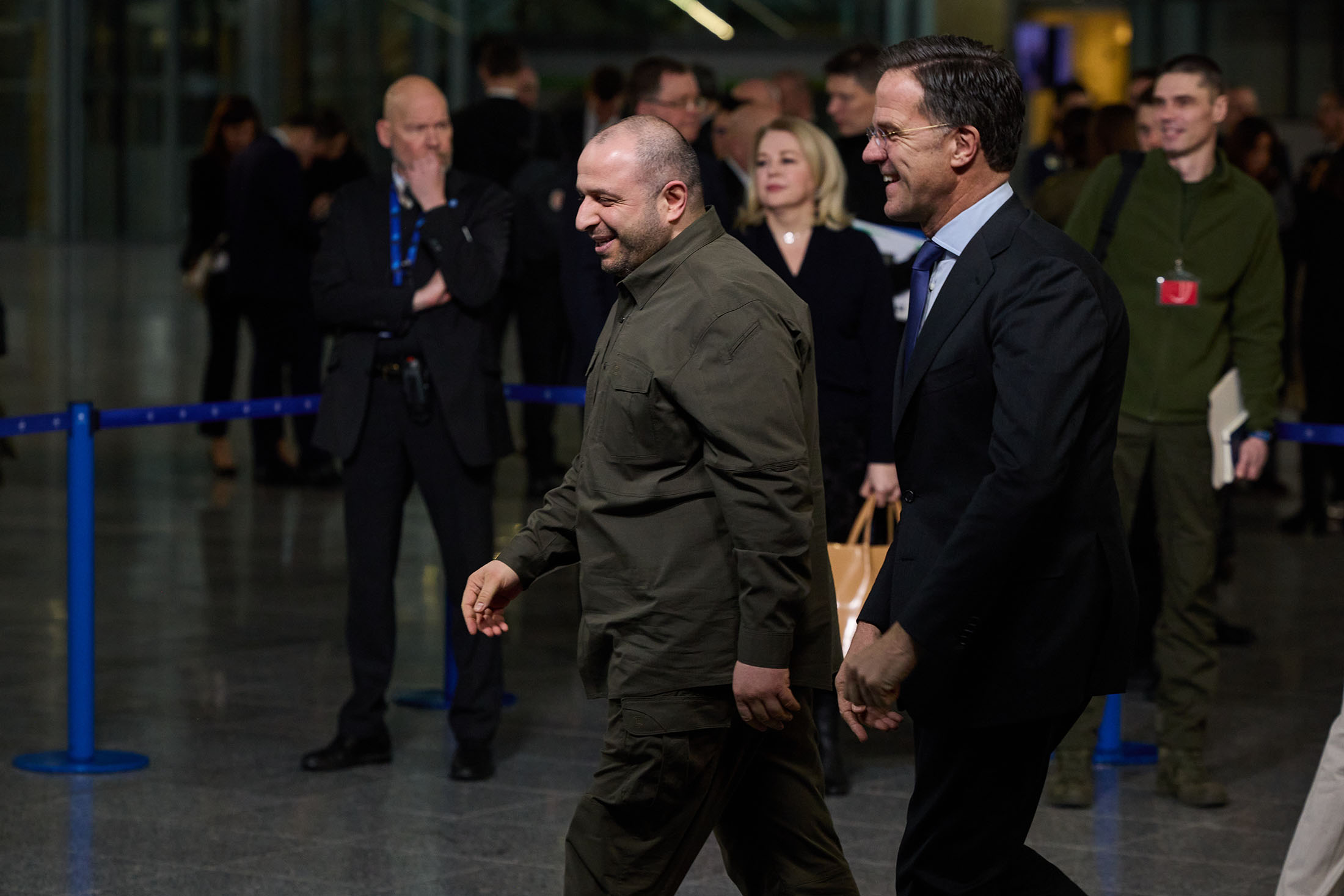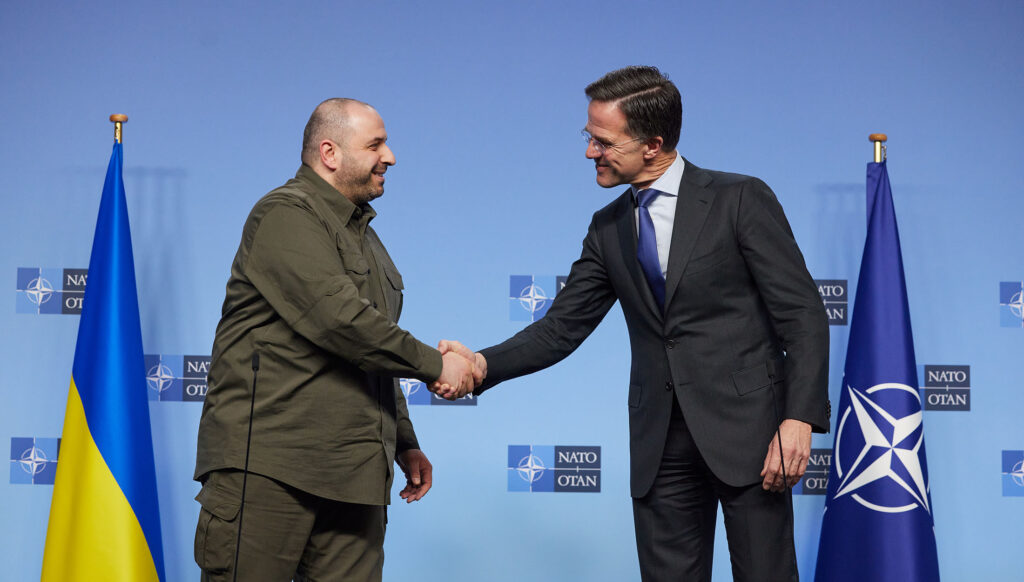NATO Secretary-General Mark Rutte has reiterated support for Ukraine following US President Donald Trump's announcement that he would start peace negotiations after speaking to Russian President Vladimir Putin.
"We must ensure that Ukraine is in the best possible position when the negotiations to end the conflict begin," Rutte emphasised. "And when these discussions end, we must ensure that the result is lasting and that Vladimir Putin never again seizes a single square kilometre of Ukraine. To achieve this, we must continue our military aid to Kyiv."
It follows the US President's announcement on Wednesday evening that he had agreed with his Russian counterpart to launch "immediate" negotiations on Ukraine, and promised a meeting between them in person. He also spoke to Ukrainian President Zelenskyy after, but dismayed European leaders for having sidestepped them for any peace talks.
Meeting the Minister of Defence of Ukraine, Rustem Umerov in Brussels, Rutte took the chance to respond on Thursday at the NATO summit. He said that the alliance's members provided nearly €50 billion in military aid to Kyiv last year, exceeding the target of 40 billion that they had collectively set themselves, said the alliance's Secretary General on Thursday.
However, in order to put Ukraine in the best possible position when peace negotiations begin, NATO members will have to continue their efforts in this direction, Rutte added, on the sidelines of a meeting of the organisation's defence ministers in Brussels.

NATO Secretary General Mark Rutte meets with the Minister of Defence of Ukraine, Rustem Umerov on 13 February 2025. Credit: NATO
On Wednesday, the US Secretary of State for Defence, Pete Hegseth, also considered it "unrealistic" to envisage a return of Ukraine to its pre-2014 borders, which included Crimea. He also ruled out the sending of US troops to this country as part of a possible peace agreement. Hegseth also torpedoed Ukraine's NATO prospects if such an agreement was reached. However, the NATO chief was cautious in the face of these announcements.
"We are an alliance of democracies, we need to debate," he emphasised. "I see a clear convergence, showing that we want peace and that this peace must be lasting [...] We will see how things develop from now on, step by step. Of course, it is essential that Ukraine be closely involved in everything that happens in Ukraine," he added.
Trust the process?
The European Commission, meanwhile, also responded on Wednesday calling the phone call between the US and Russia presidents "part of a process".
"We see yesterday's phone call as the beginning of a process. As a result, there will be a number of meetings. We will see what the next steps are," commented spokesperson Paula Pinho during the Commission's daily press briefing.
She highlighted the Munich Security Conference starting on Friday, which will be attended by Ukrainian President Volodymyr Zelensky and European Commission President Ursula von der Leyen.
The Commission also welcomed the adoption of a declaration on Wednesday in Paris by members of the Weimar+ format, which includes France, Germany, Poland, Italy, Spain, and the United Kingdom.
This declaration reaffirms their commitment to strengthening support for Ukraine and defending its independence, sovereignty, and territorial integrity. It emphasises that any peace must be "just, comprehensive and lasting."
"Ukraine and Europe must be part of any negotiation," they insist.

